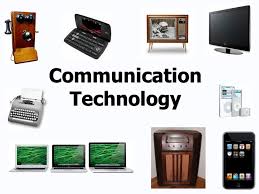
Introduction
The importance of language especially among human beings cannot be overemphasized because it is a means of expressing a thought, an idea, or carrying out an action. According to experts, there are over 250 languages in Nigeria; and this applies in many other countries globally. A language is usually in two forms, spoken and written language, especially in the literate world .
In whatever form it may be, the desire to convey an idea in a more pronounced way gives rise to the practice of engaging another person to assist in the process, and this becomes known as language service. In other words, every activity geared towards passing a content across in a language can be termed to be a language service; and those who specialise in this task are language service providers or practitioners (LSPs). This term shall be used interchangeably in this discussion.
Language services apply to every aspect of human endeavour globally both at micro and macro levels. It exists in the United Nations Assembly, in every country, and in every sector of the nation be it military, engineering, health, agriculture, education, or business. In as much as it is not possible to succeed single-handedly, the question is, how do you maximize language services in your endeavour. This is the thrust of this discussion with particular focus on the corporate world. The aim is to provide an insight into the benefits of using language services for your global marketing, and provoke more ideas on how to tap into the benefits.
SIX BENEFITS OF LANGUAGE SERVICES IN GLOBAL MARKETING
- Competitive Edge – Language services will project your products to as many target customers as your company desires in the chosen country or geographical location. This will put your organization at a competitive advantage over others because your products and services will receive a boost and an increased turnover.
- Clients’ Satisfaction – In the corporate world, clients satisfaction is a function of understanding their needs, and supplying the needs when needed, and the way it is needed. Language service is a veritable tool to accomplish this because it will provide a clear description and direction on how the product will get to the end-user. So, the ability to touch the hearts of the clients through their language is an added advantage in the efforts to satisfy them and maintain a durable mutual business relationship with them.

- Easy Acceptability – Language services enhance your product acceptability among your target audience. This becomes possible because your package gets to them in the format that meets their expectation. So, there is better receptivity by both the old and new customers since you are able to speak their language.
- Quality Localization – Language services will produce quality localization and transcreation to near-native level. This will have positive ripple effects on marketing strategy, branding and the corporate image of the organization. The reward is enlarged market access and increased goodwill in the target market.
- Easy Contextualization – Another important benefit of language services is the contextualization of your product in the geographical location of your target audience. For instance, a foreign goods that is meant for the Nigerian market. The language services will segment the country into any of the three major languages of your target audience that is Hausa, Igbo, or Yoruba. The language service will then design the advertising campaigns of your product to reflect the values, norms and nuances of the target linguistic market. This applies to both import and export goods.
- Positive Perception – Language services are an effective tool for moulding public opinions and perceptions. They will equally influence and easily convince your target audience. Consequently, they will be able to make informed decisions on the usefulness of the products being introduced to them. This is with respect to the potential capacity to meet the real needs of the people.
STRATEGIES TO MAXIMIZE LANGUAGE SERVICES
Having discussed the imperatives of language services in business, the question now is how do you tap into the potentials of language services to achieve your marketing goals? The only set of people to make this happen are the language service providers (LSPs). So, let’s look into some tips to consider before you engage these experts.
- Choose Trusted LSPs – Go for the best when it comes to making a decision on the person to be your language service provider. There are a lot of quacks and scammers out there, but to be on the safer side, consult professional associations where you will find qualified and experienced language practitioners. For example, the Language Services Practitioners Association of Nigeria (LASPAN), Proz.com, IAPTI, and other similar global bodies. Things to consider may include a good cultural understanding of your target language, turn-around-time (TAT), and pricing structure among others.
- Reference – A reference request from other clients who have benefitted from the services of the LSP is in order. This will enable you to assess the reliability, capability, and quality service delivery of the prospective LSP.
- Treat LSPs with Respect – Treat your LSP as an important member of your project team. It is a common saying that a person will live up to the level of integrity that is ascribed to him. So, if you treat your LSPs as being important, they will respond to you accordingly and you will enjoy their services.
- Open Communication – Maintain an open communication channel with your LSP. Provide clear instructions with appropriate follow-ups to ensure quality delivery. Every communication should carry a tone of respect and courtesy. Remember that respect is reciprocal.
- Maximize the Potentials – Maximize the potentials of your LSP, especially in the specific area where services are needed. For example, linguistic validation, translation, interpretation, sub-titling, or transcription. Put in place also an appropriate mechanism for regular follow-up, feedback and quality assurance throughout the project life-cycle.
- Leverage Technology – The unprecedented technological advancement in this century has now made the world a global village. Therefore, consider the use of relevant tools for your language services like the Translation Management System (TMS), Translation Memory (TM), and a host of other CAT tools including MemSource, Memoq, Smartling and Trados in order to streamline workflows and enhance efficiency. If allowed, explore the usage of machine translation for initial drafts, and follow it up with the professional review of a qualified LSP.

- Investment in Training – It is important to train your project team on relationship management. This will enhance their productivity and harmonious working relationship with the clients, partners, LSPs and other stakeholders, and reduce conflict to the barest minimum.
Conclusion
A careful consideration and application of the above tips will enhance your survival and boost your competitive edge in the language industry.

